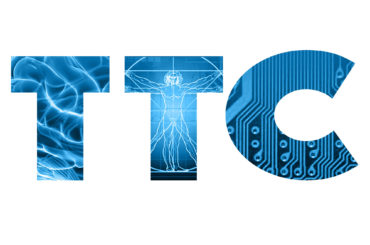Miri Polachek is the CEO of Joy Ventures, a startup studio focused on building, funding and supporting startups developing science-backed consumer products that help people experience everyday moments of joy and improve their emotional wellbeing.
Miri is a headline speaker at this year’s TransTech Conference from 13-14 November.
BOOK your ticket today!
Tell us about Joy Ventures. What’s your investment thesis?
Our mission is to build and support companies that are developing consumer products for emotional wellbeing. We have a somewhat nontraditional approach to investing: we invest in existing startups and support them along their journey to the market, and we also invest a lot of resources in building companies from scratch, with entrepreneurs and innovators in our community. We’ve been building up a venture creation engine that has turned into a startup studio and we recently launched our Entrepreneur-in-Residence platform. We are also supporting research and technology development, primarily in academia. We currently have five portfolio companies, and we’ve already made a couple of follow-on investments. We’re long-term investors so our hope is that we stay involved with the companies over time. We’ve also funded 36 research and technology development projects and we’ve run various innovation programs that are generating many ideas.
How is COVID-19 changing the rhetoric around emotional and behavioral health and wellbeing?
With all of these things becoming part of regular conversation in the media, suddenly it’s very easy to stand up and be heard. I think it’s sad that we had to go through this horrible global pandemic for people to say, “Wow, I need to take care of my emotional wellbeing.” But for us, it’s really doing wonders because it’s allowing us to tell our story, make our pitch and get in front of audiences around the world to talk about this huge need and this huge opportunity. We’ve been moving full force ahead in terms of meeting companies and trying to find as many good ones as possible. And we’ve got a couple of investments right now in the pipeline that we hope to close later this year.
What are you excited about this year?
I think emotional wellbeing is going to be one of the biggest categories for 2020. For example, anything that has a social or companionship component, whether it’s digital or robotics, that gives people new ways of not feeling alone. I think there’s a huge opportunity there. There are some companies that we’ve been following for a while that we love. For example, I personally love Woebot. I think it’s a really wonderful way to have a short interaction every day. It feels very human, it’s light, it’s humorous, but it’s also science-based, using tools like cognitive behavioral therapy. We also really like an Israeli company called Intuition Robotics that’s developing an AI companion for the elderly. While they haven’t gone to market yet, they’ve just seen a huge surge in interest.
What are you expecting to see in the next six to 12 months?
First of all, many more companies in the wellbeing category. I think that there’ll be more innovation, new ventures being born out of this environment that’s just so different in so many ways. I am sure there will be new tools related to work. For example, gaming is a great platform for skill training and optimization. I also expect to see more sophisticated models in the fitness category as people are looking for experiences to manage their wellbeing that are more accessible and insightful. And we are already witnessing it: Mirror, the virtual workout startup that offers real-time feedback, just got acquired by Lululemon for $500M. Those types of tools will become more and more common.
What do you think needs to happen for the wellbeing category to truly take off?
We need many more entrepreneurs to enter this space. And we also need a couple of successes in the industry, a few companies to make it really big, whether it’s a big exit or a big IPO, that would show the world that it is not just a trend. And I think it will happen, especially now with the current situation, people will be inspired to come up with new ideas. The money is out there. I don’t think there’s a shortage of investors that are ready and willing to take these risks even early on.
By Anastasia Ustinova for Transformative Technology





